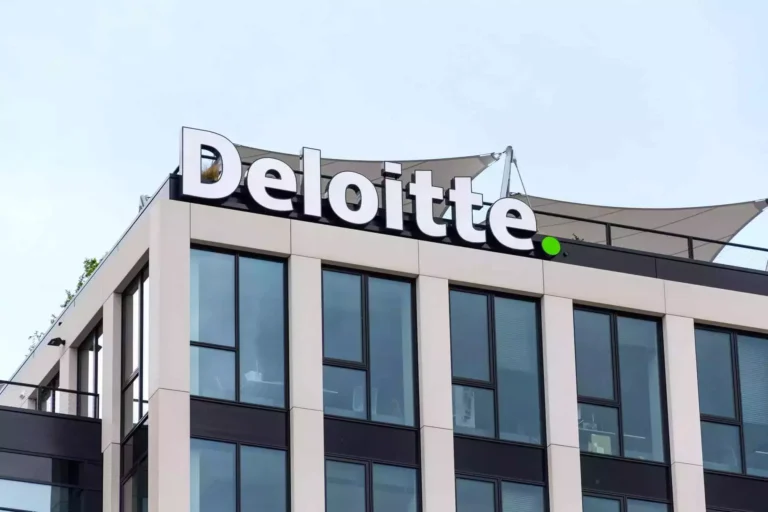Deloitte Forensic Audit Interview Questions You Must Prepare in 2025

Introduction
Preparing for a forensic audit role at Deloitte in 2025? You’re not alone. With financial frauds becoming increasingly sophisticated, the demand for skilled forensic auditors is rising fast—especially in India’s Big Four firms. Whether you’re a CA student, a forensic aspirant, or a finance professional looking to switch gears, cracking the Deloitte forensic audit interview is all about understanding the process, thinking critically, and showcasing your investigative acumen.
In this guide, we’ve curated the most relevant Deloitte forensic audit interview questions you can expect, along with practical insights and tips to help you ace each round.
What to Expect in a Deloitte Forensic Audit Interview in 2025
Deloitte’s forensic audit division focuses on detecting financial irregularities, supporting litigation, and helping clients mitigate fraud risk. Unlike traditional audit roles, forensic auditors dive deep into transactional details, digital evidence, and behavioral red flags.
Here’s what Deloitte looks for during interviews:
Understanding of forensic principles: Interviews often begin with basic concepts to gauge your foundation.
Fraud detection orientation: You’ll be expected to approach issues like an investigator, not just an auditor.
Confidentiality and ethics: Handling sensitive information ethically is a must.
Communication skills: Report writing and stakeholder discussions play a big role in forensic engagements.
Most Common Deloitte Forensic Audit Interview Questions
Conceptual Questions
These assess your grasp of core forensic concepts:
What is forensic auditing, and how is it different from a statutory audit?
Tip: Focus on the objective of fraud detection vs. compliance and financial reporting.Why is confidentiality so important in forensic audits?
Tip: Mention data sensitivity, reputational risk, and potential legal implications.Explain the 6-step forensic audit process.
Suggested Flow: Planning → Data collection → Fraud detection → Analysis → Reporting → Legal support.
Practical Scenario-Based Questions
Be ready to think on your feet with real-world situations:
How would you detect a procurement-side fraud?
Look for: Duplicate vendors, inflated quotations, and split purchase orders.What red flags do you look for in vendor transactions?
Examples: Round-dollar amounts, lack of documentation, frequent changes in bank details.How do you draft an investigation report suitable for legal action?
Include: Executive summary, methodology, findings, digital evidence annexures, and legal disclaimers.
Technical Skill Questions
Deloitte values auditors who are tech-savvy and data-literate:
What software tools are used in forensic audits (ESI tools like Relativity)?
Tip: Mention tools like EnCase, IDEA, FTK, Relativity, and data analytics platforms.How do you analyze large volumes of emails for fraud indicators?
Approach: Keyword searches, email clustering, communication patterns, and metadata analysis.Explain the concept of whistleblower mechanisms and how it aids forensic audits.
Tip: Highlight anonymity, early fraud detection, and case initiation through whistleblower reports.
Case Studies Deloitte Might Ask You to Solve
Deloitte may include case studies in their assessment rounds to test your analytical thinking. Some common themes include:
Vendor Collusion
Example: A company receives inflated quotes from multiple vendors that trace back to the same entity.Bank Statement Scrutiny
Scenario: A finance executive is suspected of transferring small amounts regularly—your job is to find the pattern.Related-Party Transactions
Challenge: Identifying misappropriation through dummy companies or relatives receiving unjustified payments.
What Skills Deloitte Looks for in a Forensic Auditor
To stand out, showcase these core competencies:
Investigative mindset: Ability to ask the right questions and follow the money trail.
Legal awareness: Understanding what constitutes admissible evidence in Indian courts.
Reporting ability: Strong skills in writing clear, concise, and legally sound investigation reports.
Tech proficiency: Knowledge of forensic tools and data analytics techniques.
Hiring managers at Deloitte value professionals who can balance skepticism with structured analysis, and who stay calm under pressure during fraud investigations.
Check how well your resume is crafted with our Resume Scorer tool.
Conclusion
Getting selected for a forensic audit role at Deloitte isn’t just about technical knowledge—it’s about showcasing curiosity, integrity, and a mindset built for uncovering the truth. By preparing for both conceptual and scenario-based questions, brushing up on tools, and learning from real-world fraud cases, you’ll enter your Deloitte interview with confidence and clarity.